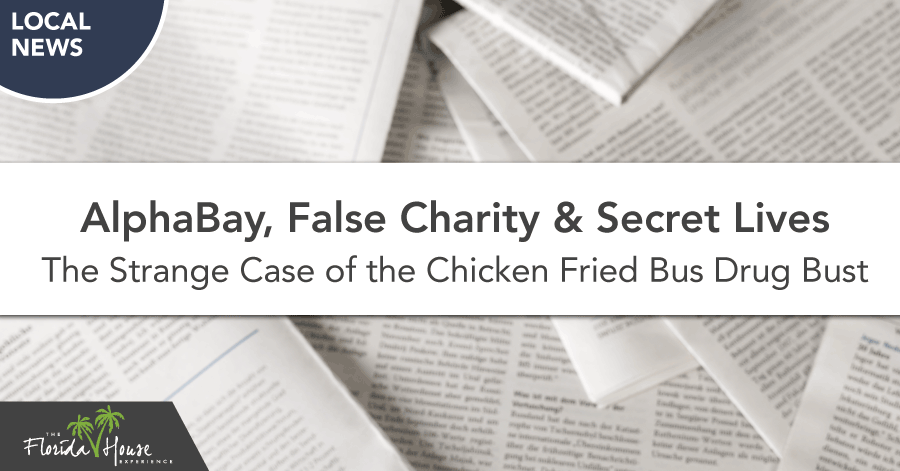
Helping the homeless and building a successful small business are generally two things to be proud of, but as one Tulsa, Oklahoma food truck owner found out, when drugs get involved, things can get out of hand.
Food Truck Drug Bust in Oklahoma
Jeremy Singer, the owner of a Tulsa food truck called the ‘Chicken Fried Bus,’ got busted in December 2018 for drug trafficking when United States Customs and Border Protection seized a package addressed to him containing a half pound of ecstasy. Officers from the Tulsa County Sheriff’s Office arrested Singer when he accepted the package at his home and discovered that his involvement with drugs went much deeper than just personal use.
In addition to buying the ecstasy to sell, Singer also had plenty of other drugs on hand, including marijuana, Viagra, mushrooms and Oxycontin. His drug collection wasn’t just for making money, though, he insisted to authorities. He also distributed marijuana joints for free to homeless people he encountered.
The authorities were unimpressed by this admission of charity drug dispensing and pointed out that distributing drugs to the homeless population isn’t helpful or legal. In fact, drug and alcohol use among the homeless population is considered a serious problem.
According to research published in the journal ‘Substance Abuse,’ in some homeless populations, more than 50 percent have a substance abuse disorder. About one-third of deaths of homeless people in a primary care program are associated with drug or alcohol use. The most common drugs used by the homeless population are cannabis, cocaine and opioids. The use of drugs and alcohol can exacerbate the issues the homeless face, impacting their physical and mental health and making it harder for them to seek out and get help for both homelessness and substance abuse.
Buying Drugs Online
Another twist to this story comes from the source of money Singer used to purchase his drug stash. Singer admitted to the police that he ordered his drugs off the Dark Web, an online network of marketplaces and individual sellers that use special browsers and programs to maintain anonymity so they can sell illegal items without being tracked. People who buy things on the Dark Web typically use Bitcoin to pay, since it is harder to trace than credit cards and bank accounts.
The FBI pays special attention to Dark Web traffic and has shut down multiple sites that sell illegal drugs. In July 2017, the agency took down the largest drug-trafficking Dark Web site in the world, AlphaBay. According to the FBI, before its takedown, AlphaBay had over 200,000 users and more than 250,000 listings selling illegal drugs and toxic chemicals.
In Jeremy Singer’s case, the authorities busted him after intercepting the drugs he ordered off the Dark Web, but police and FBI agents have other ways of stopping Dark Web drug trafficking as well. Sometimes authorities pose as a seller to catch people who order drugs or other illegal items on the Dark Web. In other cases, they’ve taken over the accounts of site administrators, mined data for patterns of behavior and hacked into vulnerable computer systems connected to the Dark Web network.
The massive traffic seen at sites such as AlphaBay and the also-shuttered Silk Road are a direct symptom of the prevalence of drug use and abuse. Many people struggle to break free of addiction and turn to illicit purchases of drugs off the Dark Web – or in some cases accept charity from drug sellers like Singer who bought their drugs at a reduced cost using hard-to-trace Bitcoin.
If you or a loved one needs help recovering from drug or alcohol addiction, don’t jeopardize your health and risk legal consequences by buying off the Dark Web. Instead, contact FHE Health to speak confidentially with an admissions counselor about our programs and start a course of treatment that can help you get and stay sober.






